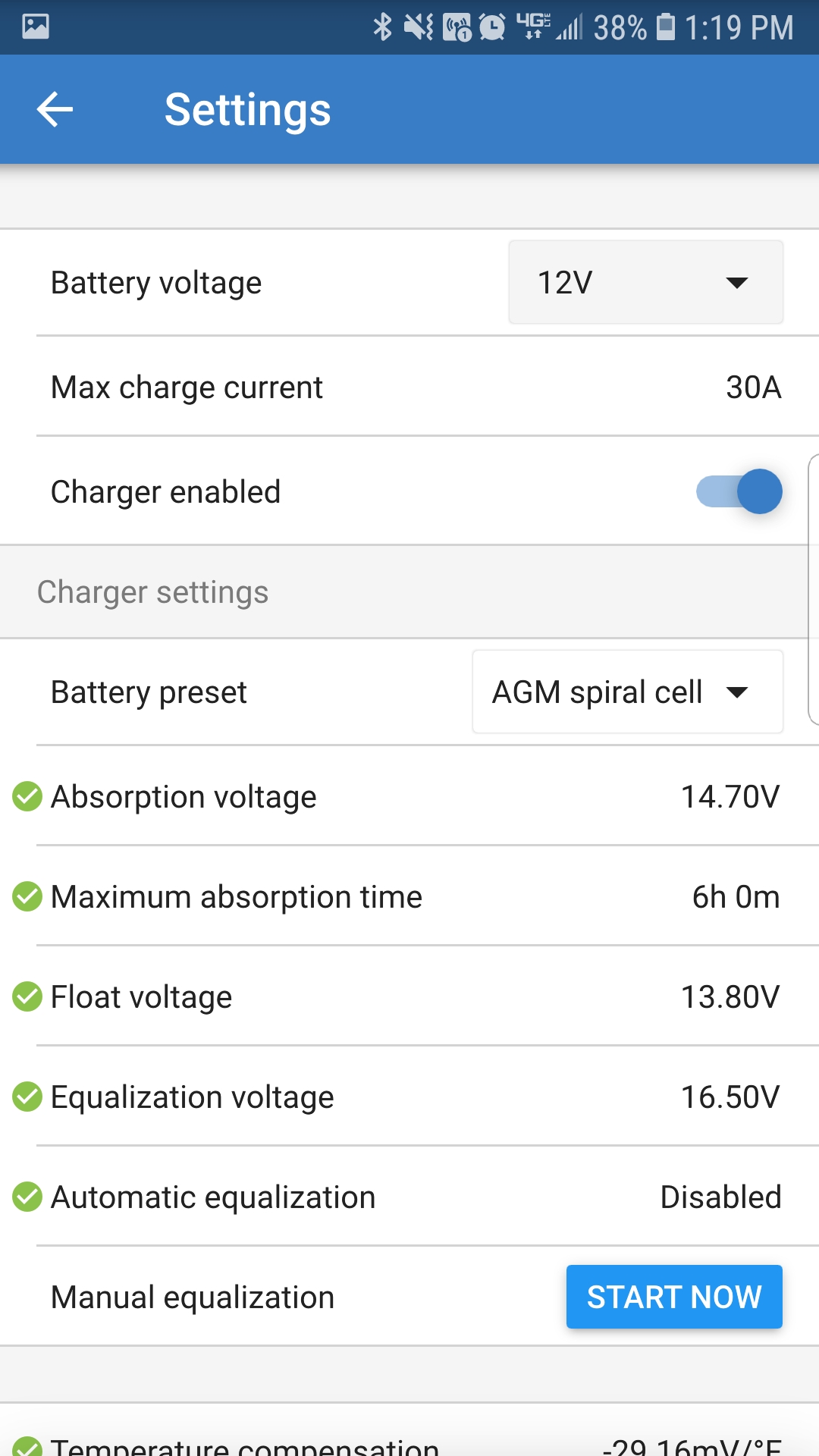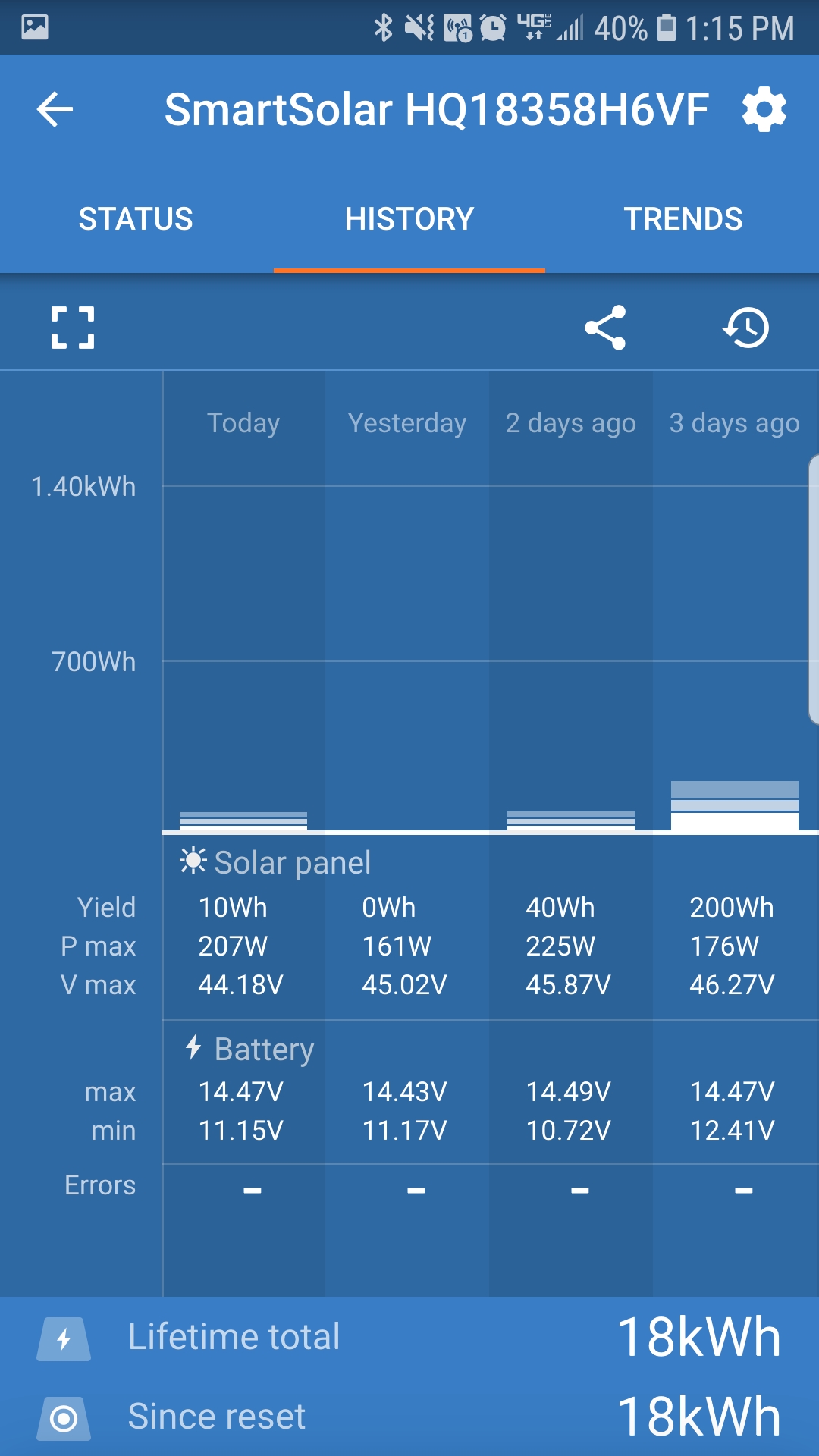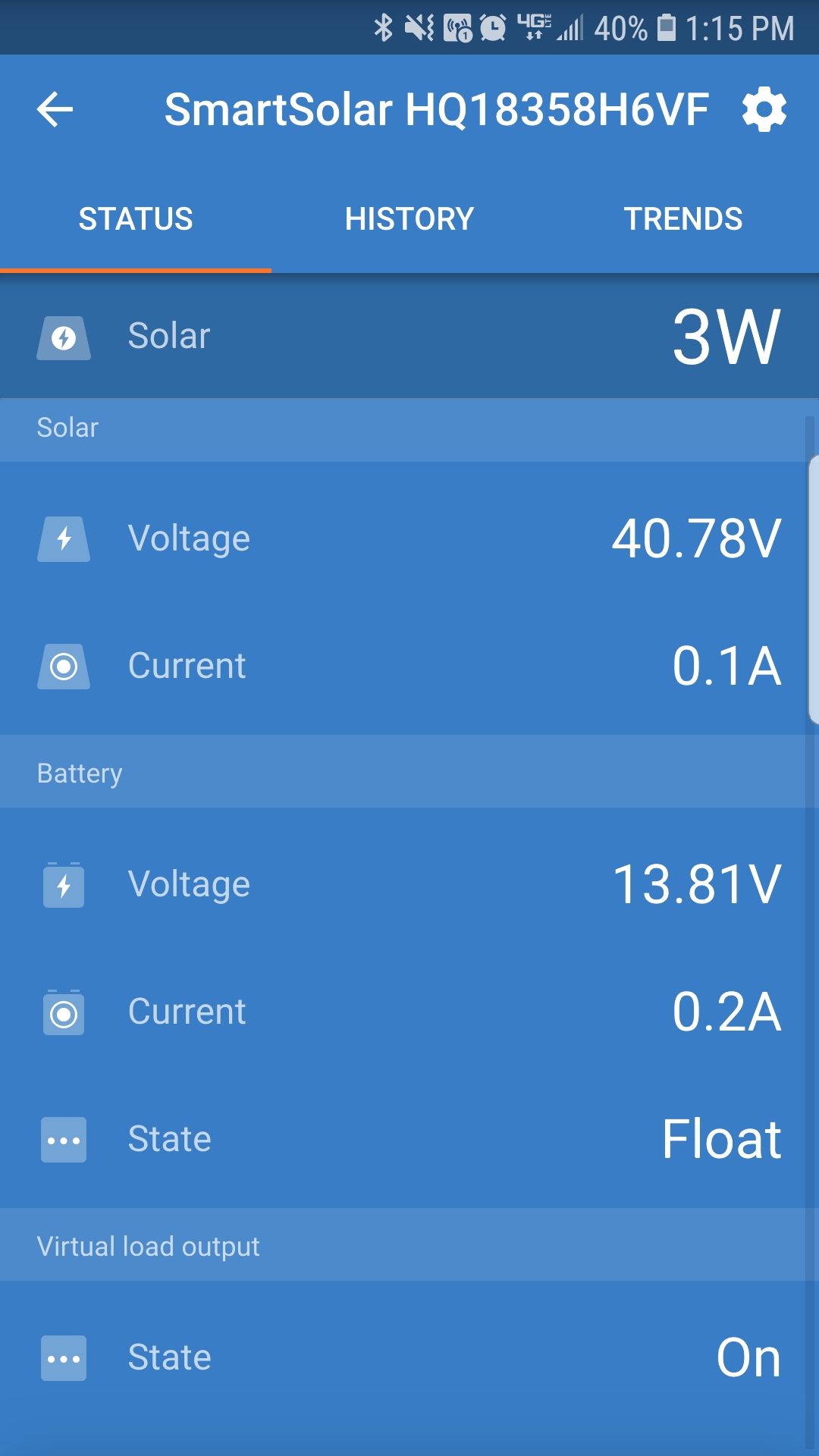Have a 100/30 hooked up to two 175W panels. Been using it fine for about a month now. Out of the blue, it has stopped working. It charged the batteries up to 92% and then output 0W (sometimes 2-3). I unplugged everything and replugged it back in and it worked as normal again for a few hours (edit: got me up to 96%). Then back to 0W (still reading a nominal amount of V both from the battery and from the panels). I unplugged and replugged again, this time it worked for a few minutes. But then stopped. I repeated the process and now it's not charging at all.
I have checked all the connections with a multimeter and everything appears tip top. One thing I noticed is the voltage reading from the battery terminals of the controller do not match the voltage reading from the batteries themselves.
I also wondered if it was my battery monitor being wrong, but when I turn appliances on, the charger still refuses to output any wattage. Is my unit defective? Or is there something else I should try that I'm missing?


 Pictures from Victron Connect
Pictures from Victron Connect